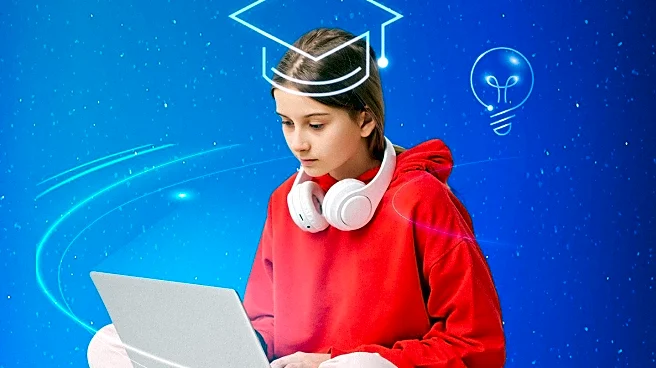What is the story about?
What's Happening?
The article explores the impact of technology on children's behavior and development, emphasizing the need for effective digital parenting strategies. It highlights the correlation between excessive screen time and disruptive behaviors in children, such as aggression and decreased attention spans. The author suggests two main approaches: restrictive methods, which involve setting limits on technology use, and co-use mediation, where parents engage with technology alongside their children. These strategies aim to foster better parent-child relationships and mitigate the negative influences of technology.
Why It's Important?
As technology becomes increasingly integrated into daily life, understanding its impact on child development is crucial for parents and educators. The negative effects of excessive screen time, including mental health challenges and behavioral issues, underscore the importance of proactive digital parenting. Implementing strategies like restrictive methods and co-use mediation can help parents guide their children's technology use, promoting healthier habits and improving socioemotional development. This approach not only benefits children but also strengthens family dynamics by encouraging open communication and shared experiences.
Beyond the Headlines
The discussion on digital parenting touches on broader societal implications, such as the evolving role of technology in education and the potential for increased parental involvement in children's digital lives. As research in this field grows, it may influence public policy and educational practices, encouraging institutions to support parents in managing technology's impact. Additionally, the emphasis on co-use mediation highlights the cultural shift towards more interactive and engaged parenting styles, reflecting changing attitudes towards technology and its role in family life.
















